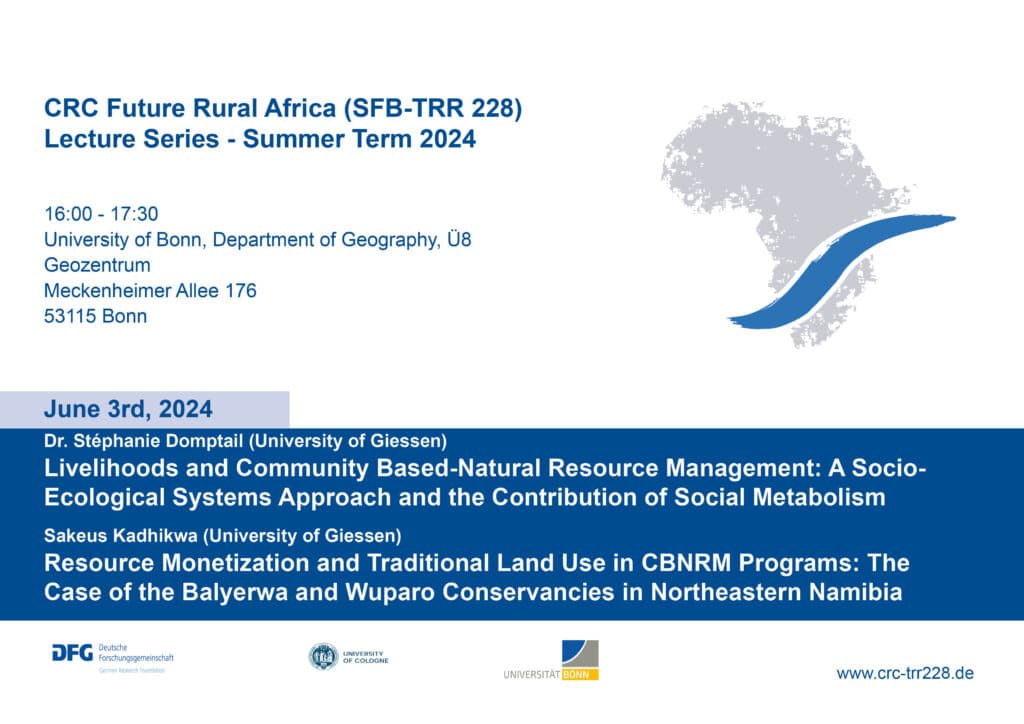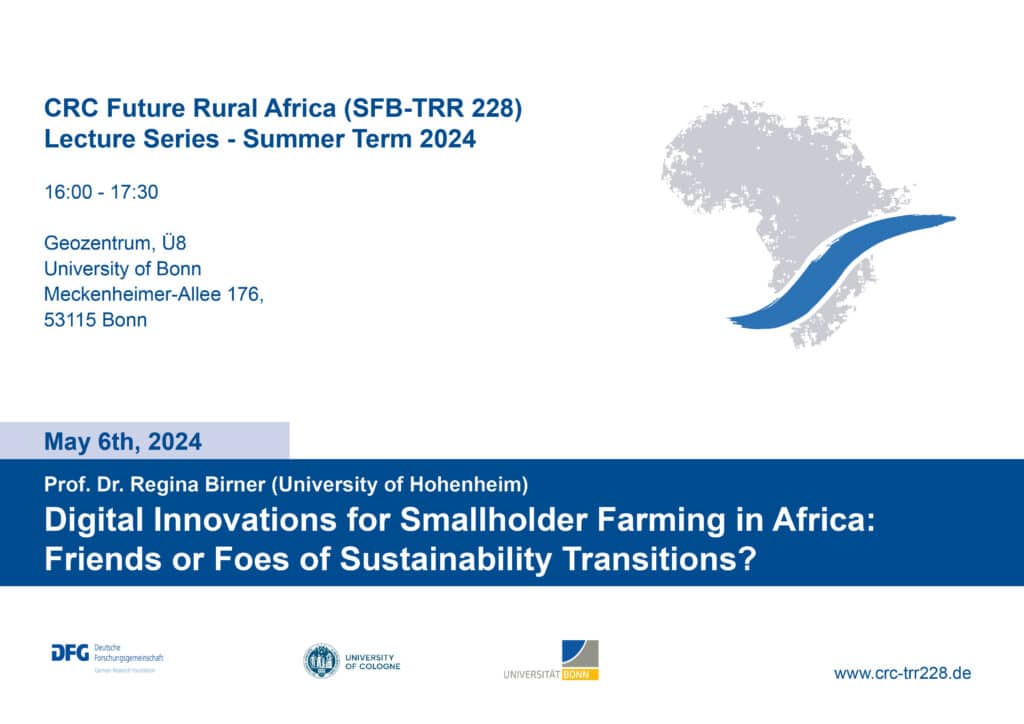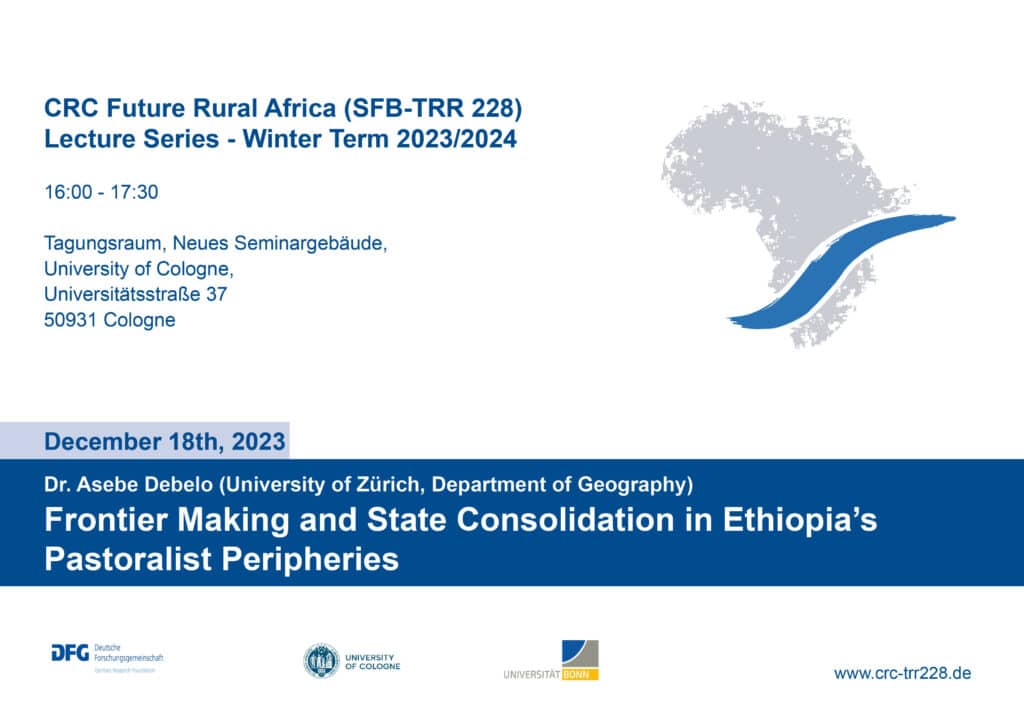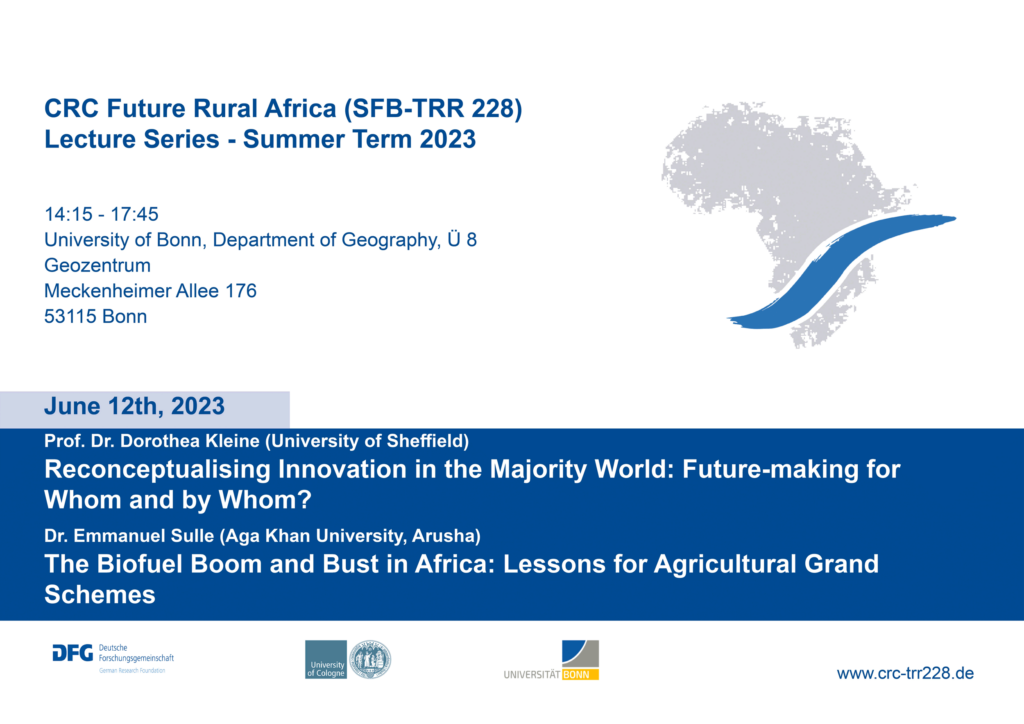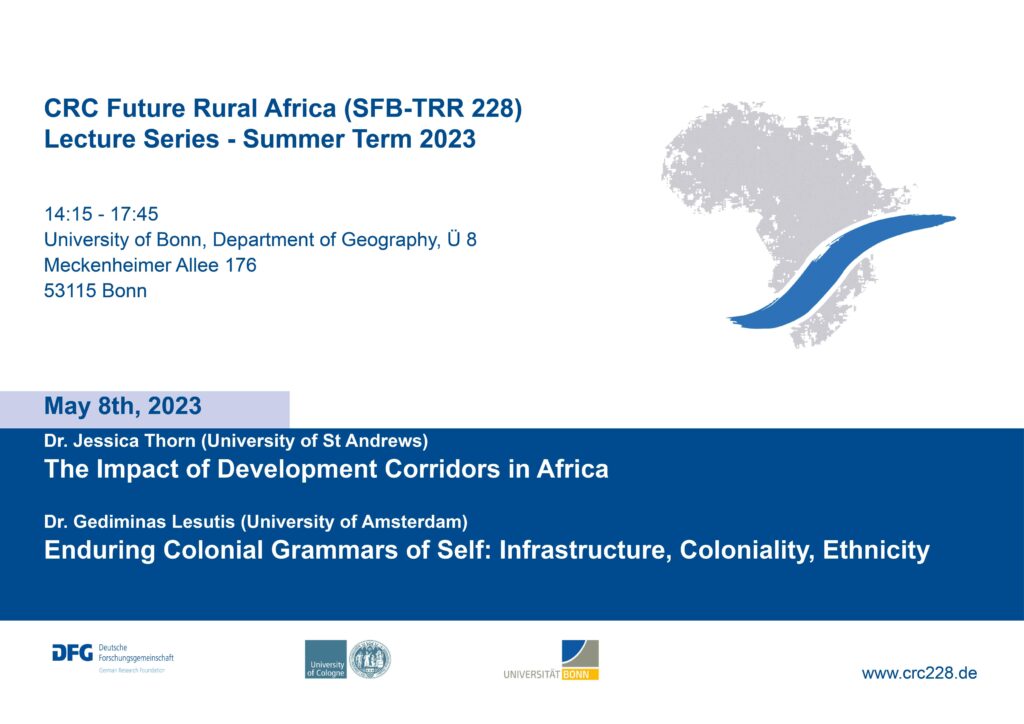CRC TRR 228
CRC Lecture Series
We regularly invite leading scholars working on challenges related to our research.
CRC-TRR Public Lecture: Stéphanie Domptail & Sakeus Kadhikwa
Mon | June 3, 2024 | 16:00 – 17:30 CEST The Future Rural Africa Public Lectures Series is back with a double header! Dr. Stéphanie Domptail is a researcher and lecturer at the University of ...
13. May 2024
Read more »
CRC-TRR Public Lecture: Regina Birner
Mon | May 6, 2024 | 16:00 – 17:30 CEST We are excited for the next volume of the Future Rural Africa Public Lectures Series. Prof. Dr. Regina Birner is Chair of Social and Institutional ...
30. April 2024
Read more »
CRC-TRR Public Lecture: Asebe Debelo
Mon | December 18, 2023 | 16:00 – 17:30 CET We are excited for the next volume of the Future Rural Africa Public Lectures Series. Dr. Asebe Debelo is a senior scientist at the University ...
16. November 2023
Read more »
CRC-TRR Public Lecture: Emmanuel Sulle & Dorothea Kleine
Mon | June 12, 2023 | 14:15 – 17:45 CET We are excited for the next volume of the Future Rural Africa Public Lectures Series. Prof. Dr. Dorothea Kleine is the Director of the Institute ...
1. June 2023
Read more »
CRC-TRR Public Lecture: Jessica Thorn & Gediminas Lesutis
Mon | May 8, 2023 | 14:15 – 17:45 CET We are thrilled to be kicking-off the summer term 2023 of the Future Rural Africa Public Lectures Series with a double-header. On 8th May we ...
2. May 2023
Read more »

